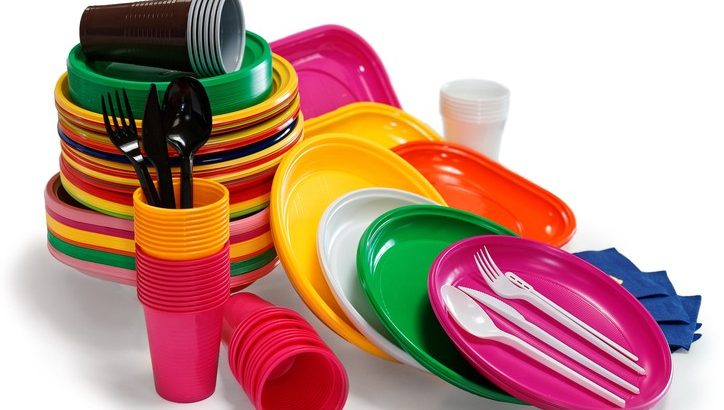The European Parliament has adopted a new law banning disposable plastic items such as dishes, cutlery, straws and cotton swabs.
Thus, a range of products will be phased out in the EU gradually by 2021. These are disposable plastic cutlery (forks, knives, spoons and chopsticks), disposable plastic plates, plastic straws, swabs with plastic parts, plastic balloon bases, oxidizable plastics, food packaging and beverage made of expanded polystyrene (fe).
560 MEPs voted in favor of the agreement with the EU Ministers, 35 voted against and 28 abstained.
Member States should achieve the target of collecting 90% of plastic bottles by 2029, while plastic bottles should be at least 25% recycled by 2025 and 30% by 2030.
According to an EP communication, the agreement also strengthens the application of the "polluter pays" principle, specifically for tobacco products, by introducing a regime of increased liability for producers. This new regime will also apply to fishing gear to ensure that producers, not fishermen, bear the cost of collecting lost gear at sea.
The legislation requires mandatory labeling of the negative environmental effects of throwing cigarettes with a plastic filter in the streets, as well as for other items, such as plastic cups, wet wipes and women's hygiene products.
Rapporteur Frédérique Ries (Liberals, Belgium) stated that this legislation would reduce the cost of environmental damage by € 22 million, the estimated cost of plastic pollution in Europe by 2030.
"Europe now has a legislative model to defend and promote it internationally, given the global scale of the plastic pollution caused by plastics," he said.
According to the European Commission, more than 80% of marine litter is plastic. The products covered by the new legislation constitute 70% of the total marine litter. Due to the slow rate of decomposition, plastic accumulates in seas, oceans and beaches in the EU and worldwide. Plastic residues are found in marine species such as sea turtles, seals, whales and birds, but also in fish and shellfish and therefore in the human food chain.
Source: KYPE
